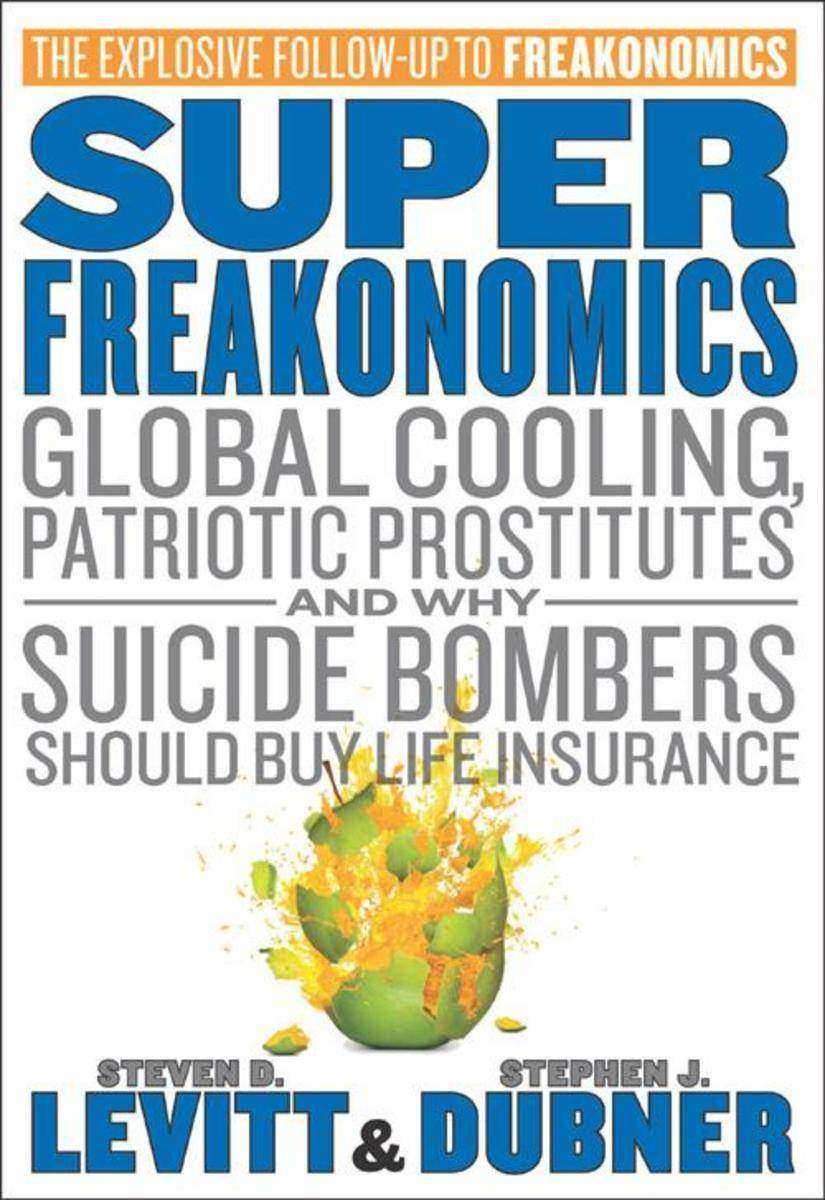
SuperFreakonomics
¥95.11
The New York Times best-selling Freakonomics was a worldwide sensation, selling over four million copies in thirty-five languages and changing the way we look at the world. Now, Steven D. Levitt and Stephen J. Dubner return with SuperFreakonomics, and fans and newcomers alike will find that the freakquel is even bolder, funnier, and more surprising than the first. Four years in the making, SuperFreakonomics asks not only the tough questions, but the unexpected ones: What's more dangerous, driving drunk or walking drunkWhy is chemotherapy prescribed so often if it's so ineffectiveCan a sex change boost your salarySuperFreakonomics challenges the way we think all over again, exploring the hidden side of everything with such questions as: How is a street prostitute like a department-store SantaWhy are doctors so bad at washing their handsHow much good do car seats doWhat's the best way to catch a terroristDid TV cause a rise in crimeWhat do hurricanes, heart attacks, and highway deaths have in commonAre people hard-wired for altruism or selfishness?Can eating kangaroo save the planetWhich adds more value: a pimp or a RealtorLevitt and Dubner mix smart thinking and great storytelling like no one else, whether investigating a solution to global warming or explaining why the price of oral sex has fallen so drastically. By examining how people respond to incentives, they show the world for what it really is good, bad, ugly, and, in the final analysis, super freaky. Freakonomics has been imitated many times over but only now, with SuperFreakonomics, has it met its match.
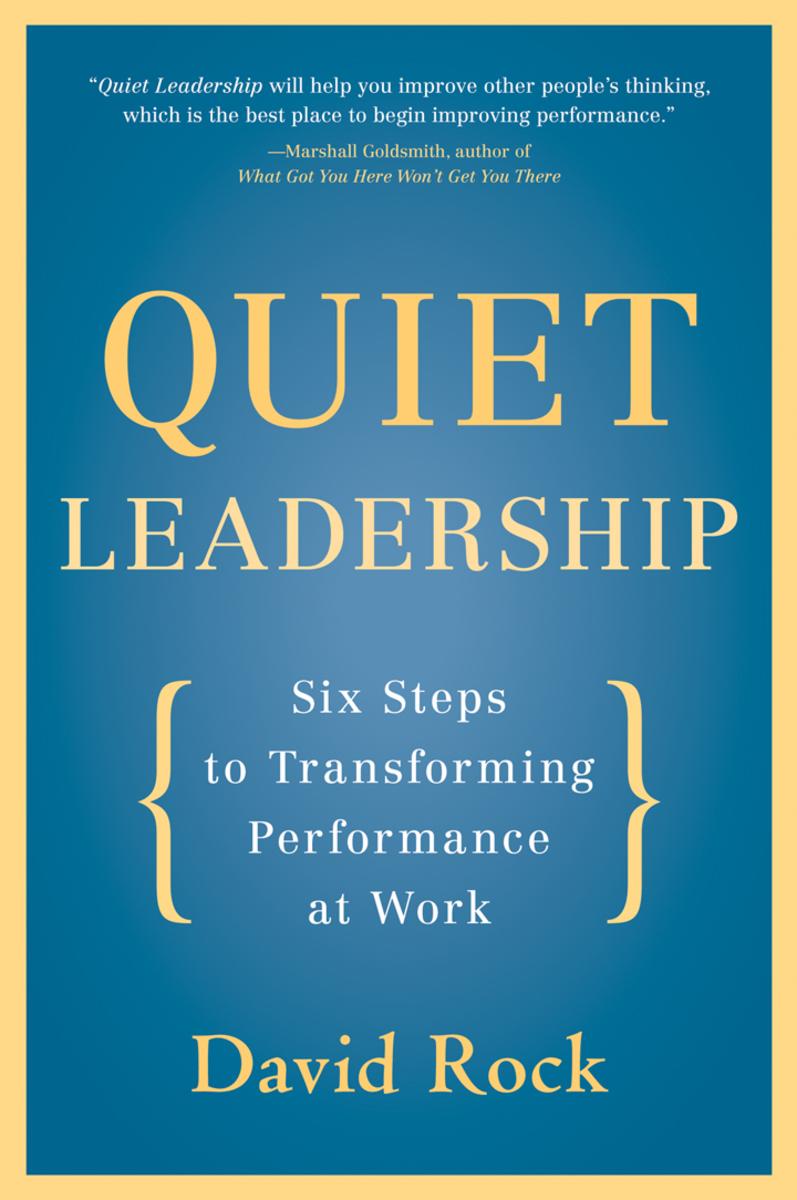
Quiet Leadership
¥95.11
Improving the performance of your employees involves one of the hardest challenges in the known universe: changing the way they think. In constant demand as a coach, speaker, and consultant to companies around the world, David Rock has proven that the secret to leading people (and living and working with them) is found in the space between their ears. "If people are being paid to think," he writes, "isn't it time the business world found out what the thing doing the work, the brain, is all about?" Supported by the latest groundbreaking research, Quiet Leadership provides a brain-based approach that will help busy leaders, executives, and managers improve their own and their colleagues' performance. Rock offers a practical, six-step guide to making permanent workplace performance change by unleashing higher productivity, new levels of morale, and greater job satisfaction.

Setting the Table
¥95.11
In October 1985, at age twenty-seven, Danny Meyer, with a good idea and scant experience, opened what would become one of New York City's most revered restaurants Union Square Cafe. Little more than twenty years later, Danny is the CEO of one of the world's most dynamic restaurant organizations, which includes eleven unique dining establishments, each at the top of its game. How has he done itHow has he consistently beaten the odds and set the competitive bar in one of the toughest trades around?In this landmark book, Danny shares the lessons he's learned while developing the winning recipe for doing the business he calls "enlightened hospitality." This innovative philosophy emphasizes putting the power of hospitality to work in a new and counterintuitive way: The first and most important application of hospitality is to the people who work for you, and then, in descending order of priority, to the guests, the community, the suppliers, and the investors. This way of prioritizing stands the more traditional business models on their heads, but Danny considers it the foundation of every success that he and his restaurants have achieved. Some of Danny's other insights: Hospitality is present when something happens for you. It is absent when something happens to you. These two simple concepts for and to express it all. Context, context, context, trumps the outdated location, location, location. Shared ownership develops when guests talk about a restaurant as if it's theirs. That sense of affiliation builds trust and invariably leads to repeat business. Err on the side of generosity: You get more by first giving more. Wherever your center lies, know it, name it, believe in it. When you cede your core values to someone else, it's time to quit. Full of behind-the-scenes history on the creation of Danny's most famous restaurants and the anecdotes, advice, and lessons he has accumulated on his long and ecstatic journey to the top of the American restaurant scene, Setting the Table is a treasure trove of innovative insights that are applicable to any business or organization.
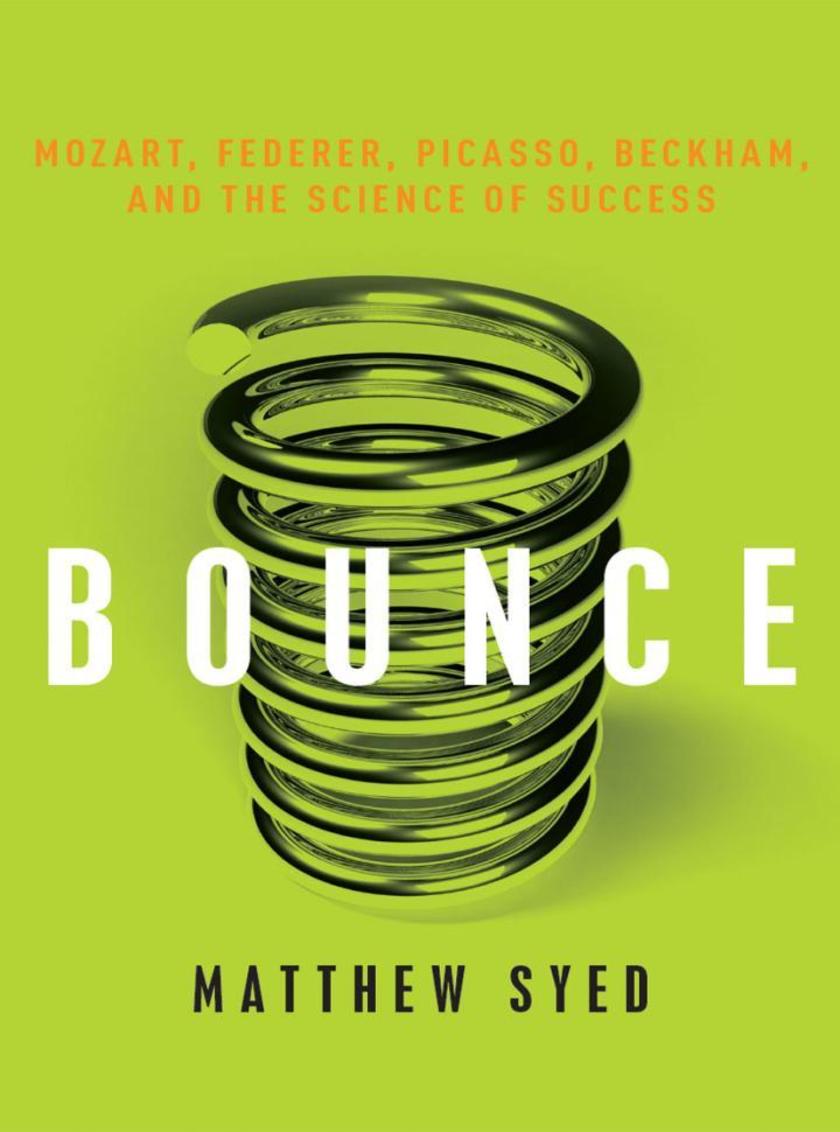
Bounce
¥95.11
Why have all the sprinters who have run the 100 meters in under ten seconds been blackWhat's one thing Mozart, Venus Williams, and Michelangelo have in common?Is it good to praise a child's intelligenceWhy are baseball players so superstitiousFew things in life are more satisfying than beating a rival. We love to win and hate to lose, whether it's on the playing field or at the ballot box, in the office or in the classroom. In this bold new look at human behavior, award-winning journalist and Olympian Matthew Syed explores the truth about our competitive nature why we win, why we don't, and how we really play the game of life. Bounce reveals how competition the most vivid, primal, and dramatic of human pursuits provides vital insight into many of the most controversial issues of our time, from biology and economics, to psychology and culture, to genetics and race, to sports and politics. Backed by cutting-edge scientific research and case studies, Syed shatters long-held myths about meritocracy, talent, performance, and the mind. He explains why some people thrive under pressure and others choke, and weighs the value of innate ability against that of practice, hard work, and will. From sex to math, from the motivation of children to the culture of big business, Bounce shows how competition provides a master key with which to unlock the mysteries of the world.
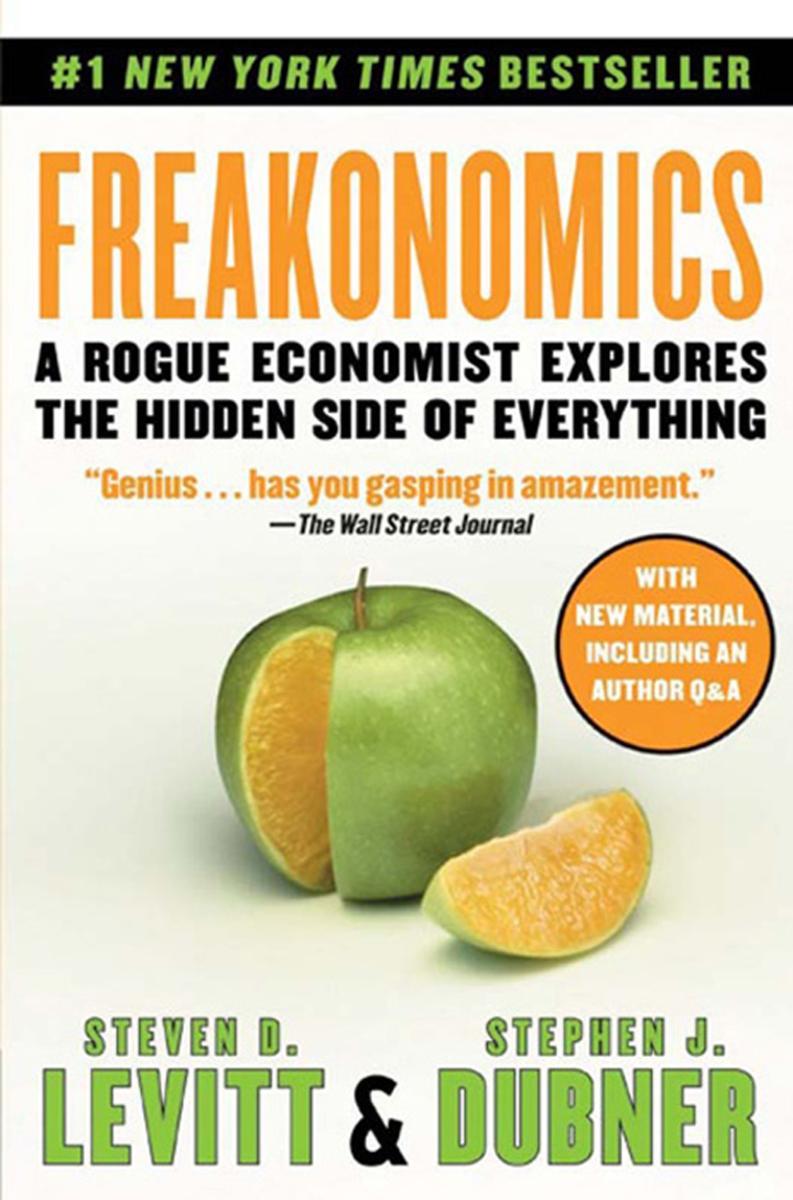
Freakonomics
¥95.11
More Than 4 Million Copies Sold Worldwide Published in 35 Languages Which is more dangerous, a gun or a swimming poolWhat do schoolteachers and sumo wrestlers have in commonHow much do parents really matterThese may not sound like typical questions for an economist to ask. But Steven D. Levitt is not a typical economist. He studies the riddles of everyday life from cheating and crime to parenting and sports and reaches conclusions that turn conventional wisdom on its head. Freakonomics is a groundbreaking collaboration between Levitt and Stephen J. Dubner, an award-winning author and journalist. They set out to explore the inner workings of a crack gang, the truth about real estate agents, the secrets of the Ku Klux Klan, and much more. Through forceful storytelling and wry insight, they show that economics is, at root, the study of incentives how people get what they want or need, especially when other people want or need the same thing.

The Honest Truth About Dishonesty
¥95.11
The New York Times bestselling author of Predictably Irrational and The Upside of Irrationality returns with thought-provoking work to challenge our preconceptions about dishonesty and urge us to take an honest look at ourselves. Does the chance of getting caught affect how likely we are to cheatHow do companies pave the way for dishonestyDoes collaboration make us more honest or less soDoes religion improve our honestyMost of us think of ourselves as honest, but, in fact, we all cheat. From Washington to Wall Street, the classroom to the workplace, unethical behavior is everywhere. None of us is immune, whether it the white lie to head off trouble or padding our expense reports. In The (Honest) Truth About Dishonesty , award-winning, bestselling author Dan Ariely turns his unique insight and innovative research to the question of dishonesty. Generally, we assume that cheating, like most other decisions, is based on a rational cost-benefit analysis. But Ariely argues, and then demonstrates, that it actually the irrational forces that we don't take into account that often determine whether we behave ethically or not. For every Enron or political bribe, there are countless puffed r sum s, hidden commissions, and knockoff purses. In The (Honest) Truth About Dishonesty , Ariely shows why some things are easier to lie about; how getting caught matters less than we think; and how business practices pave the way for unethical behavior, both intentionally and unintentionally. Ariely explores how unethical behavior works in the personal, professional, and political worlds, and how it affects all of us, even as we think of ourselves as having high moral standards. But all is not lost. Ariely also identifies what keeps us honest, pointing the way for achieving higher ethics in our everyday lives. With compelling personal and academic findings, The (Honest) Truth About Dishonesty will change the way we see ourselves, our actions, and others.
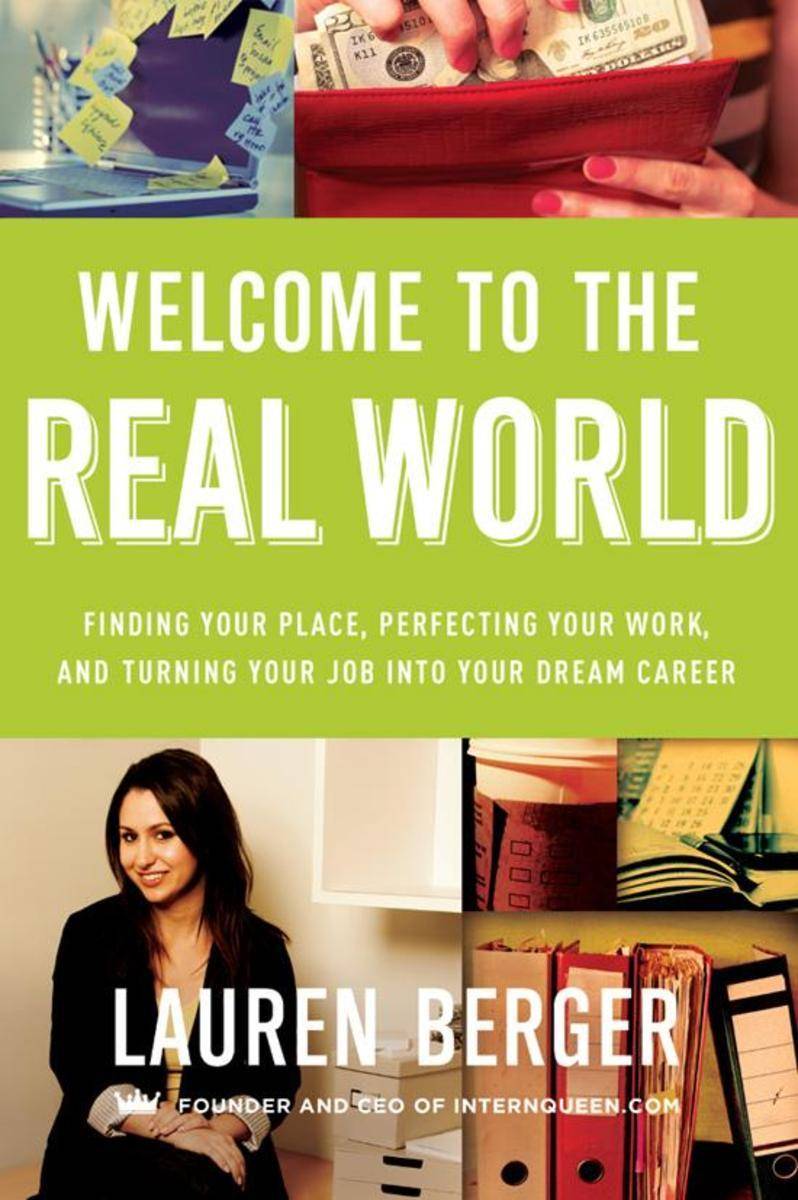
Welcome to the Real World
¥95.11
It's a challenging time to be young and new in the workplace. Your parents can't help the rules have all changed. In Welcome to the Real World, career expert and entrepreneur Lauren Berger arms you with the tools you need to succeed. She's been in your shoes just a few years ago she was you. This handbook tells you everything you need to know to make the most of your first on-the-job experience, including how to think about the big picture deal with rejection effectively manage your time navigate sticky situations in the office and communicate with different personality types embrace entrepreneurship regardless of position, rank, or title organize your financial situation and personal life get promoted and (one day) take your boss's job! In a world defined by uncertainty, Lauren shows you how to be bold, take risks, and understand your value.
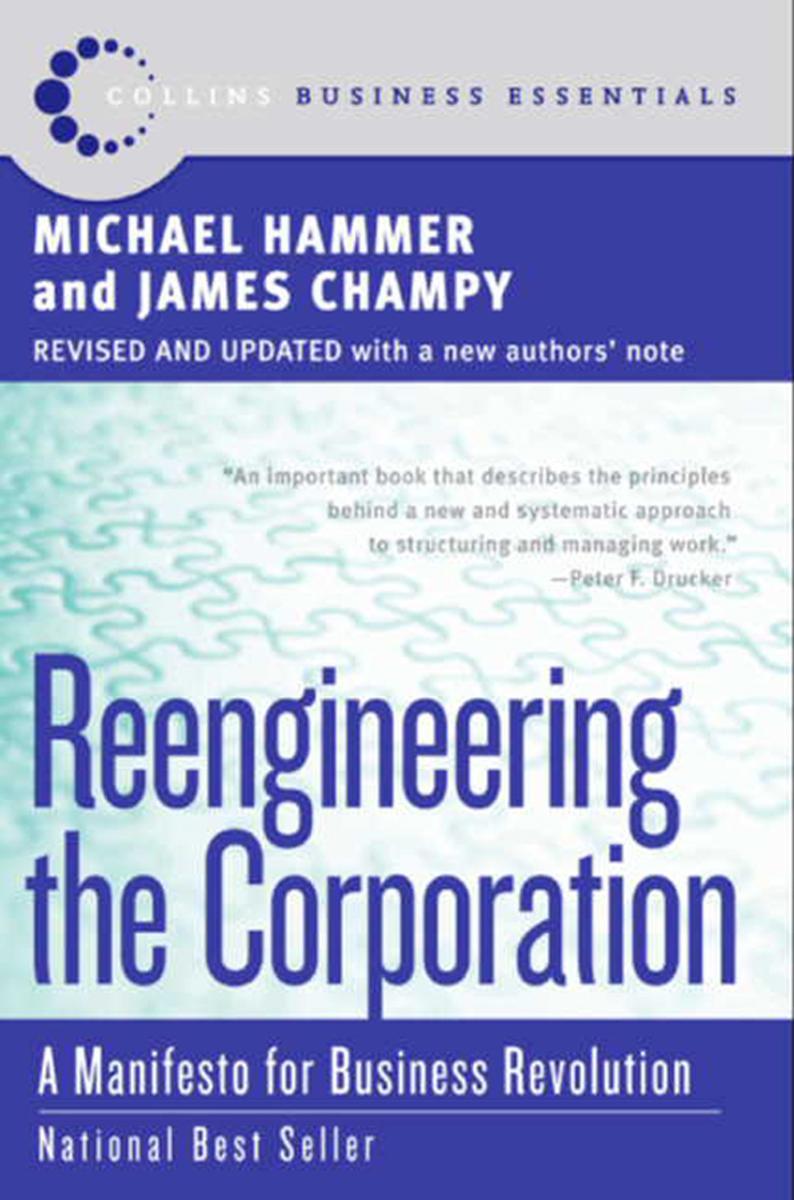
Reengineering the Corporation
¥94.10
The most successful business book of the last decade, Reengineering the Corporation is the pioneering work on the most important topic in business today: achieving dramatic performance improvements. This book leads readers through the radical redesign of a company's processes, organization, and culture to achieve a quantum leap in performance. Michael Hammer and James Champy have updated and revised their milestone work for the New Economy they helped to create -- promising to help corporations save hundreds of millions of dollars more, raise their customer satisfaction still higher, and grow ever more nimble in the years to come.
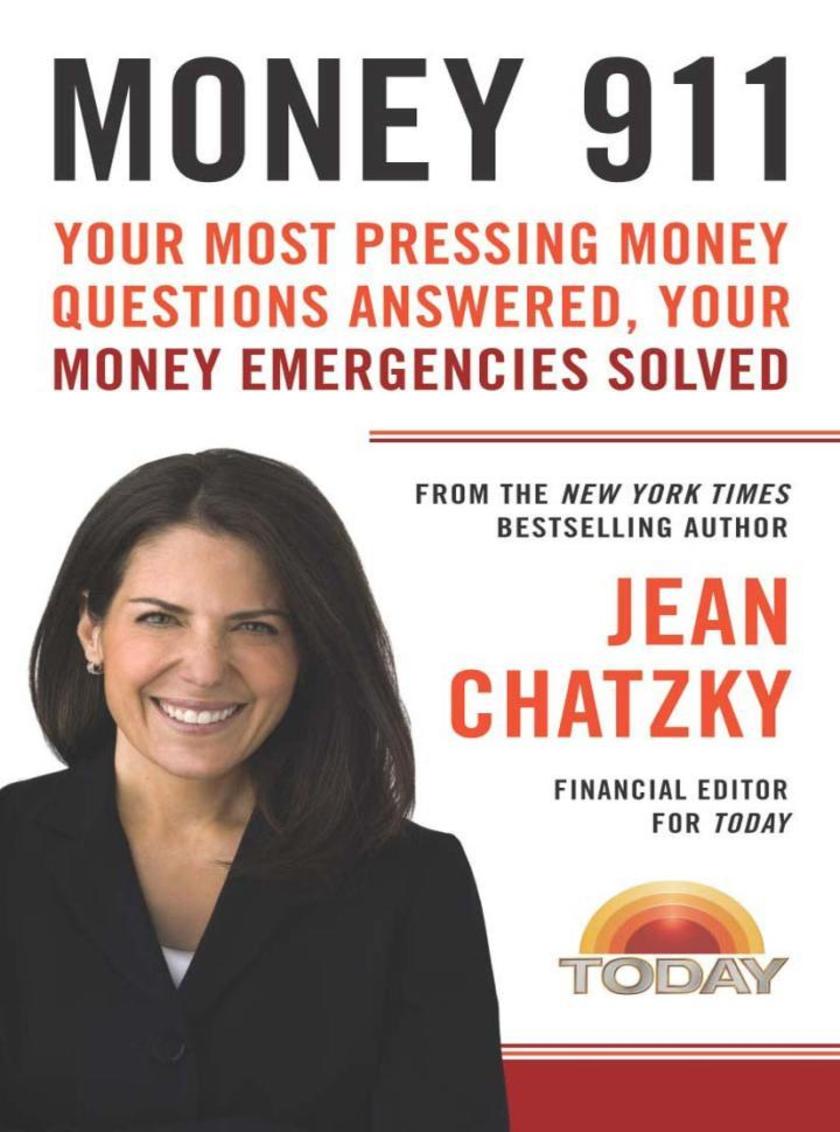
Money 911
¥94.10
The popular TODAY financial editor Jean Chatzky helps you navigate through the critical challenges and potential catastrophes of personal finance.You've just lost your job. You've got a baby on the way. Your parent has had a stroke. Most people seek financial help not because they're planning for the future but because they need it . . . right now! If you have money problems or are seeking immediate help to solve a dire, unanticipated financial emergency, then you need Money 911. In this invaluable guidebook, financial expert Jean Chatzky provides answers to today's most pressing financial questions and concerns, including: How do I get out of debtHow do I avoid foreclosureHow do I set up a monthly budgetHow can I improve my credit scoreHow do I get my health insurance to pay a claimWhat should I do when I lose a parentWith Money 911, you can prepare for retirement, buy or sell a home, pick up the pieces of your personal finances, and get back on your feet and stay there!
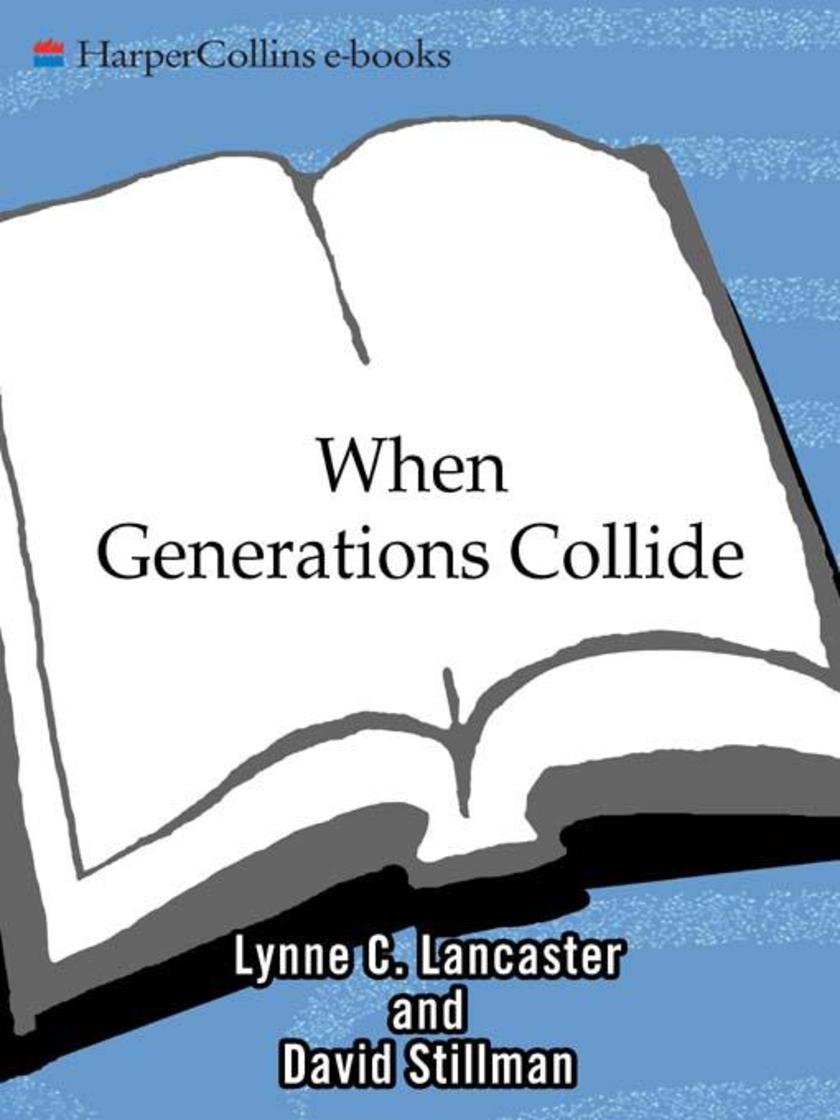
When Generations Collide
¥94.10
If your workplace feels like a battle zone and colleagues sometimes act like adversaries, you ore not alone. Today four generations glare at one another across the conference table, and the potential for conflict and confusion has never been greater. Traditionalist employees with their "heads down, onward and upward" attitude live out a work ethic shaped during the Great Depression. Eighty million Baby Boomers vacillate between their overwhelming need to succeed and their growing desire to slow down and enjoy life. Generation Xers try to prove themselves constantly yet dislike the image of being overly ambitious, disrespectful, and irreverent. Millennials, new to the workforce, mix savvy with social conscience and promise to further change the business landscape. This insightful book provides hands-on methods to close the generation gaps. With effective tools to recruit, retain, motivate, and manage each generation, you can now create teamwork, not war, in today's highperformance workplace . . . where at any age, productivity is what counts.
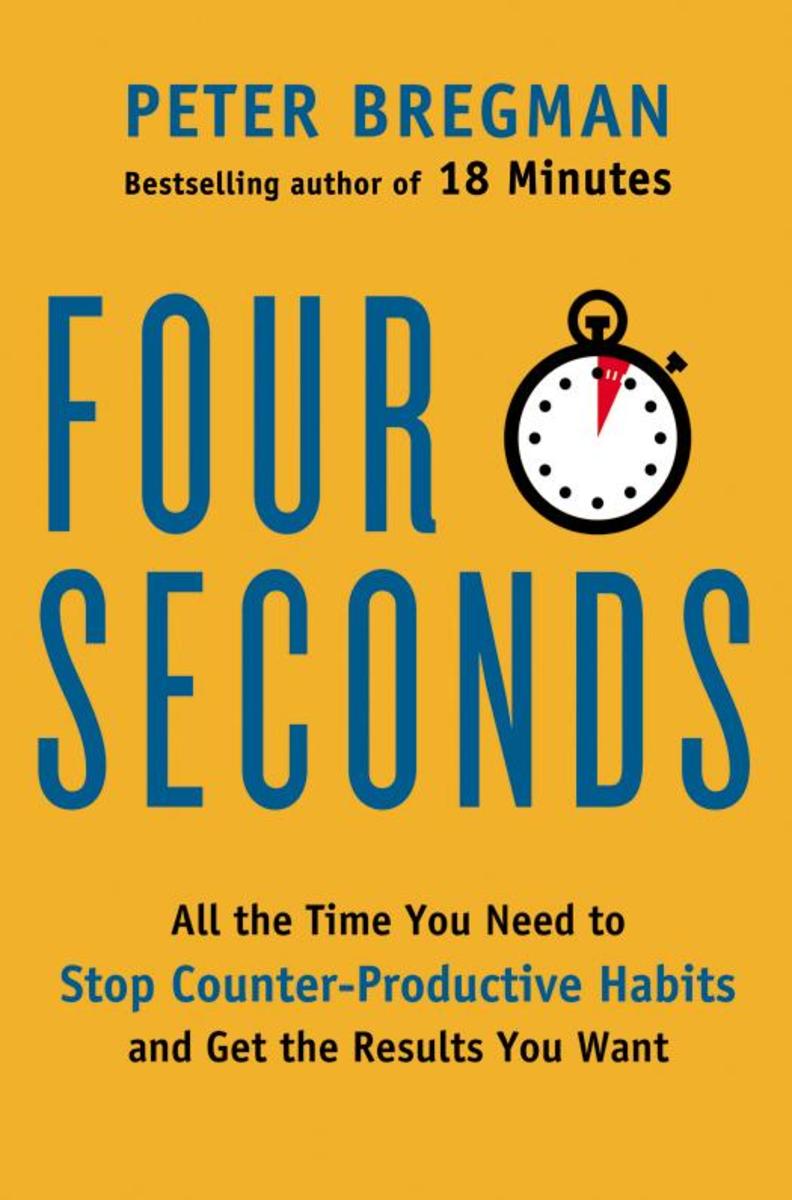
Four Seconds
¥94.10
All too often our best efforts to accomplish the things we want most to do our jobs well, to make meaningful contributions at home and at work, to have satisfying relationships with loved ones, friends, neighbors, and coworkers are built on bad habits that sabotage us. We feel overwhelmed by our increasingly large to-do list, so we automatically multitask to get more done and end up more stressed and more overloaded. We say something with the hopes of impressing the other person, but instead of end them then spend days trying to repair the damage. We give what we think is a pep talk to our team but they walk away demotivated.How can we be most effective and productive in a world that moves too fast and demands so much of us?In Four Seconds, Peter Bregman shows that the answer is to pause for as few as four seconds the length of a deep breath to replace bad habits and reactions with more productive behaviors. In his trademark style of blending personal anecdotes with practical advice, Bregman reveals some of our most common counter-productive tendencies and describes counter-intuitive strategies for acting more intentionally, including: Why setting goals can actually harm your performance How to use strategic disengagement to recover focus and willpower Why listening not arguing is the best strategy for changing someone's mind How taking responsibility for someone else's failure can actually help you succeed Drawn from Bregman's hugely popular Harvard Business Review blog, this engaging and wise book provides simple solutions to create the results you want without the stress.
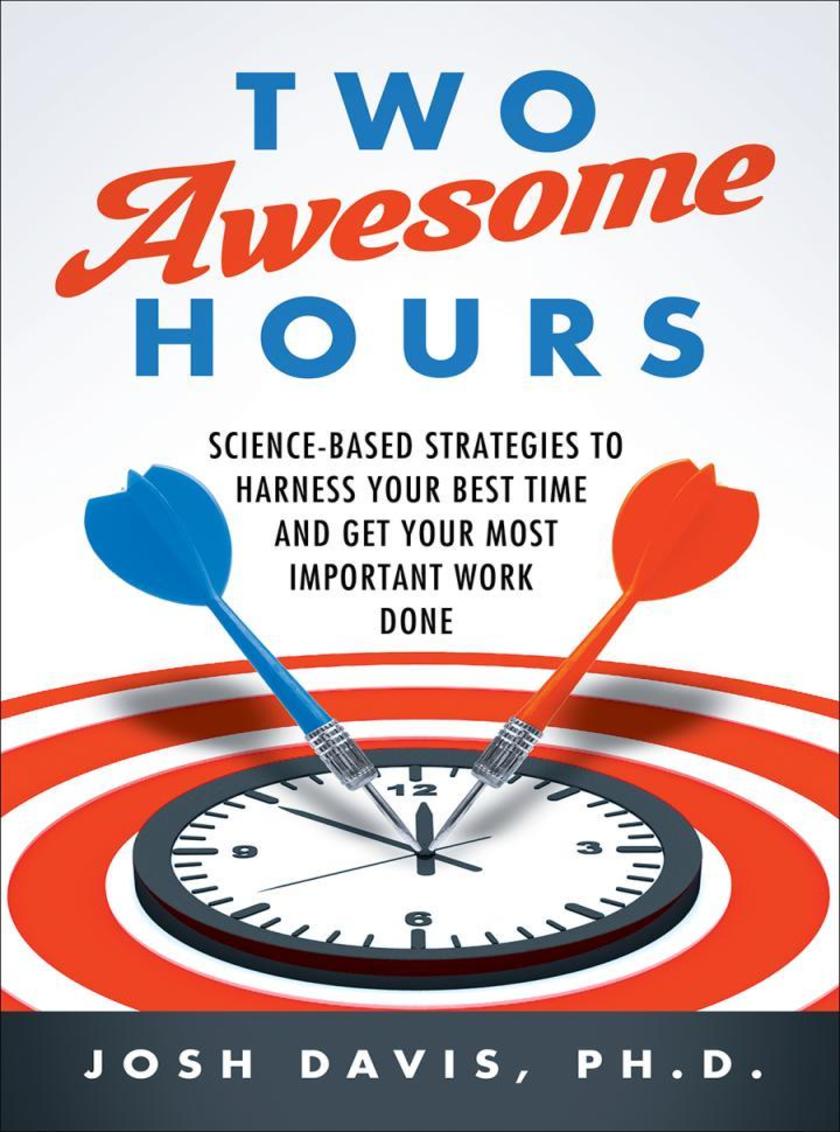
Two Awesome Hours
¥94.10
Whether we love our jobs or not, the amount of work on our plate has reached unsustainable levels. We start each workday anxious about how we will get it all done, and which important tasks will have to be sacrificed again so we can keep our heads above water. We often respond to our out-of-control to-do lists by focusing on being more efficient trying to get more done in less time.According to Josh Davis, Ph.D., we're going about it the wrong way. The answer is not to get more done faster, but rather to create the conditions for at least two awesome hours of peak productivity each day.Neuroscience and psychology research is revealing what those conditions are. Drawing on this research, Davis explains that our minds operate according to complex factors that, when leveraged the right way, can make us truly effective. Davis shows us five deceptively simple strategies to create the conditions for incredible productivity and to restore sanity and balance to our lives: Maximize the moments in our day when we are between tasks, intentionally choosing what to tackle next Schedule tasks based on their cognitive and emotional demands Learn how to direct attention Feed and move our bodies for short-term benefit Identify how our environment affects our focus and alertness We are capable of impressive feats of comprehension, motivation, and performance when our psychological and biological systems are functioning optimally. Two Awesome Hours will show us how to be our most productive every day.

Direct From Dell
¥94.10
At nineteen, Michael Dell started his company as a freshman at the University of Texas with $1,000 and has since built an industry powerhouse. As Dell journeys through his childhood adventures, ups and downs, and mistakes made along the way, he reflects on invaluable lessons learned.Michael Dell's revolutionary insight has allowed him to persevere against all odds, and Direct from Dell contains valuable information for any business leader. His strategies will show you effective ways to grow your business and will help you save time on costly mistakes by following his direct model for success.
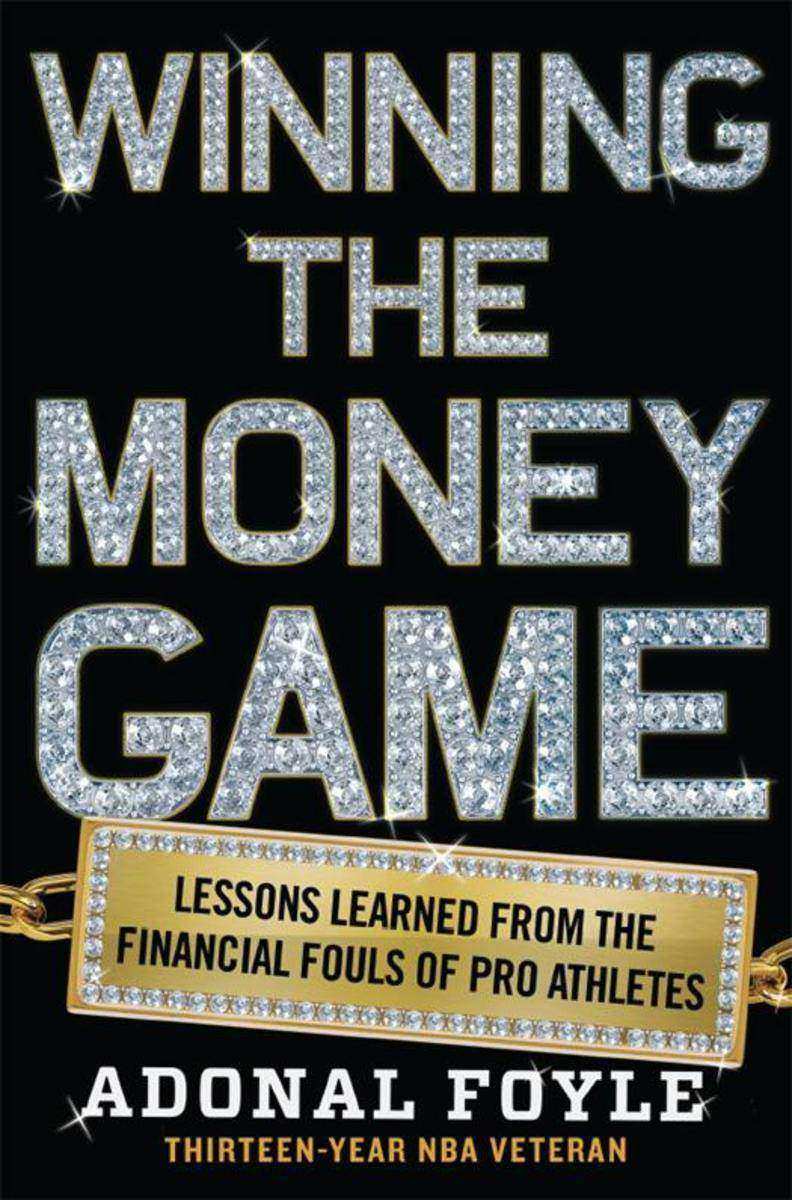
Winning the Money Game
¥94.10
Former NBA center Adonal Foyle has seen athletes burn through millions on women, large entourages, family gifts, gambling debts even shark tanks! Such spending habits are partly responsible for 60 percent of NBA players going broke within five years of retirement and nearly 80 perfect of NFL players being strapped within two.Rich with anecdotes from a sports insider, Winning the Money Game shows you how to avoid the financial fouls of athletes. Foyle gives you the straight, offering guidance on a wide range of money matters, from taxes to alimony, from child support to medical bills, and so much more. He beaks down expenses point by point, illustrating the difference between luxury items and family needs, and lays out the essential dos and don'ts to help you spend, save, and grow your money wisely.
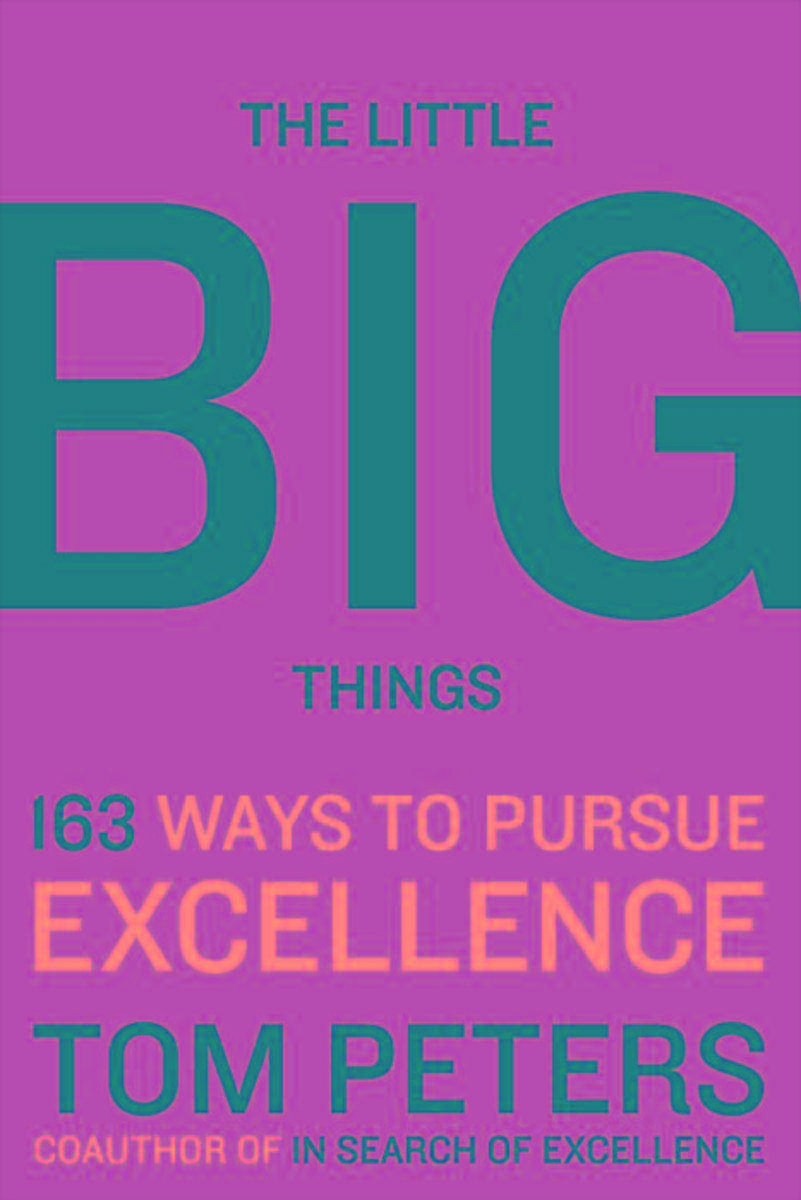
The Little Big Things
¥94.10
#131 The Case of the Two-Cent CandyYears ago, I wrote about a retail store in the Palo Alto environs a good one, which had a box of two-cent candies at the checkout. I subsequently remember that "little" parting gesture of the two-cent candy as a symbol of all that is Excellent at that store. Dozens of people who have attended seminars of mine from retailers to bankers to plumbing-supply-house owners have come up to remind me, sometimes 15 or 20 years later, of "the two-cent candy story," and to tell me how it had a sizable impact on how they did business, metaphorically and in fact.Well, the Two-Cent Candy Phenomenon has struck again with oomph and in the most unlikely of places.For years Singapore's "brand" has more or less been Southeast Asia's "place that works." Its legendary operational efficiency in all it does has attracted businesses of all sorts to set up shop there. But as "the rest" in the geographic neighborhood closed the efficiency gap, and China continued to rise-race-soar, Singapore decided a couple of years ago to "rebrand" itself as not only a place that works but also as an exciting, "with it" city. (I was a participant in an early rebranding conference that also featured the likes of the late Anita Roddick, Deepak Chopra, and Infosys founder and superman N. R. Narayana Murthy.)Singapore's fabled operating efficiency starts, as indeed it should, at ports of entry the airport being a prime example. From immigration to baggage claim to transportation downtown, the services are unmatched anywhere in the world for speed and efficiency.Saga . . . Immigration services in Thailand, three days before a trip to Singapore, were a pain. ("Memorable.") And entering Russia some months ago was hardly a walk in the park, either. To be sure, and especially after 9/11, entry to the United States has not been a process you'd mistake for arriving at Disneyland, nor marked by an attitude that shouted "Welcome, honored guest."Singapore immigration services, on the other hand:The entry form was a marvel of simplicity. The lines were short, very short, with more than adequate staffing.The process was simple and unobtrusive.And:The immigration officer could have easily gotten work at Starbucks; she was all smiles and courtesy.And:Yes!Yes!And . . . yes!There was a little candy jar at each Immigration portal!The "candy jar message" in a dozen ways:"Welcome to Singapore, Tom!! We are absolutely beside ourselves with delight that you have decided to come here!"Wow!Wow!Wow!Ask yourself . . . now:What is my (personal, department, project, restaurant, law firm) "Two-Cent Candy"?Does every part of the process of working with us/me include two-cent candies?Do we, as a group, "think two-cent candies"?Operationalizing: Make "two-centing it" part and parcel of "the way we do business around here." Don't go light on the so-called substance but do remember that . . . perception is reality . . . and perception is shaped by two-cent candies as much as by that so-called hard substance.Start: Have your staff collect "two-cent candy stories" for the next two weeks in their routine "life" transactions. Share those stories. Translate into "our world." And implement.Repeat regularly.Forever.(Recession or no recession you can afford two cents.)(In fact, it is a particularly Brilliant Idea for a recession you doubtless don't maximize Two-Cent Opportunities. And what opportunities they are.)
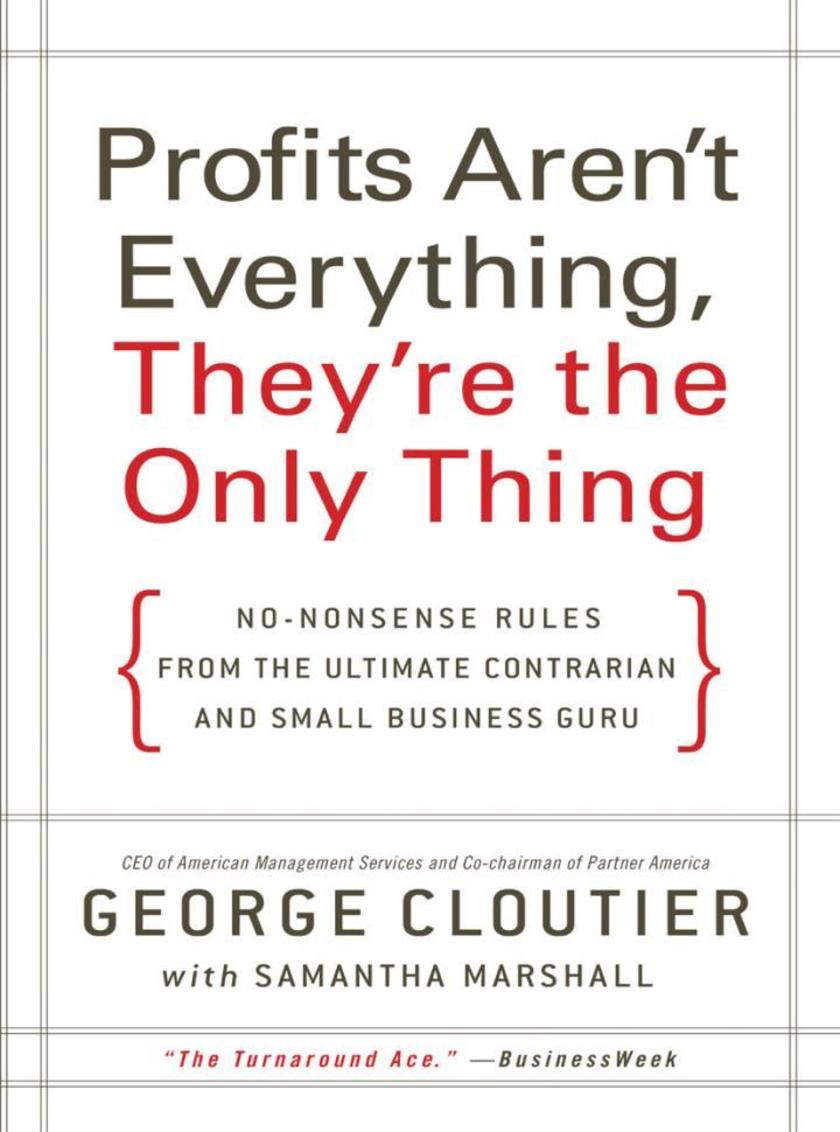
Profits Aren't Everything, They're the Only Thing
¥94.10
When small- and medium-sized business owners first hear George Cloutier's rules, they often think he's a madman. His controversial rules for doing business rules that aren't taught at Harvard Business School include:The best family business has one member.Weekends are for working, not playing golf or coaching.Never pay your vendors on time.Wear your control freak badge with pride.Quit denial: if your business is failing during a recession, it's your fault. As the founder and CEO of American Management Services, Cloutier has emerged as "the leading advocate for small business" (Reuters), having spent over thirty years guiding business owners through the tough choices that line the road to profitability. He and his company have worked with more than six thousand companies, averting certain ruin for some and generating seemingly impossible growth and profitability for others.Cloutier graduated from Harvard College and Harvard Business School, but the lessons in this book aren't from there. Unlike his classmates, most of whom headed straight to Wall Street, Cloutier has been on the docks at 2 a.m. counting heads of lettuce for food distributors to make sure nothing would disappear without a waybill. He's spent long, overnight hours in truck stops, making sure sticky fingers stayed out of the tills. Cloutier and his colleagues at American Management Services become personal pitt bulls to the CEOs who hire them, doing whatever it takes to bring their clients' businesses back into long-term profitability.Profits Aren't Everything, They're the Only Thing is the long- overdue wake-up call for 23 million small- and midsize business owners across America. This book serves up the hard-boiled, unadulterated truth to aspiring and established entrepreneurs, without apologies. His no-nonsense advice may be hard to hear at times, but it works.

The E-Myth Manager
¥94.10
More than ten years after his first bestselling book The EMyth changed the lives of hundreds of thousands of small business owners Michael Gerber trepreneur author and speaker extraordinaire res the next salvo in his highly successful EMyth Revolution. Drawing on lessons learned from working with more than 15000 small medium sized and very large organisations Gerber has discovered the truth behind why management doesn't work and what to do about it. Unearthing the arbitrary origins of commonly held doctrines such as the omniscience of leader (Emperor) and the most widely embraced myth of all EMyth Manager offers a fresh provocative alternative to management as we know it. It explores why every manager must take charge of his own life reconcile his own personal vision with that of the organisation and develop an entrepreneurial mind set to achieve true success.

The Myth of the Rational Market
¥94.10
Chronicling the rise and fall of the efficient market theory and the century-long making of the modern financial industry, Justin Fox's The Myth of the Rational Market is as much an intellectual whodunit as a cultural history of the perils and possibilities of risk. The book brings to life the people and ideas that forged modern finance and investing, from the formative days of Wall Street through the Great Depression and into the financial calamity of today. It's a tale that features professors who made and lost fortunes, battled fiercely over ideas, beat the house in blackjack, wrote bestselling books, and played major roles on the world stage. It's also a tale of Wall Street's evolution, the power of the market to generate wealth and wreak havoc, and free market capitalism's war with itself.The efficient market hypothesis long part of academic folklore but codified in the 1960s at the University of Chicago has evolved into a powerful myth. It has been the maker and loser of fortunes, the driver of trillions of dollars, the inspiration for index funds and vast new derivatives markets, and the guidepost for thousands of careers. The theory holds that the market is always right, and that the decisions of millions of rational investors, all acting on information to outsmart one another, always provide the best judge of a stock's value. That myth is crumbling.Celebrated journalist and columnist Fox introduces a new wave of economists and scholars who no longer teach that investors are rational or that the markets are always right. Many of them now agree with Yale professor Robert Shiller that the efficient markets theory represents one of the most remarkable errors in the history of economic thought. Today the theory has given way to counterintuitive hypotheses about human behavior, psychological models of decision making, and the irrationality of the markets. Investors overreact, underreact, and make irrational decisions based on imperfect data. In his landmark treatment of the history of the world's markets, Fox uncovers the new ideas that may come to drive the market in the century ahead.

Becoming the Boss
¥94.10
The author of Getting from College to Career reinvents the concept of management for a new generation, offering a fresh and relevant approach to career success that shows Millennials how to make the next step: become a leader.We are in the midst of a leadership revolution, as power passes from Baby Boomers to Millennials, who are stepping into executive positions in corporations, government, and their own businesses. Becoming the Boss is a brisk, tech savvy success manual filled with real-world, actionable tips from an expert. Lindsey Pollak defines what Millennial generation leadership is and draws on original research, her own experience, and interviews with young managers and entrepreneurs to share the secrets of what makes them successful leaders and shows young professionals how to rise in their own careers. From learning to develop a style that appeals to your older colleagues to managing virtual employees to mastering the rules of social media etiquette, Becoming the Boss helps you identify your next professional move and shows you how to succeed once you get there.
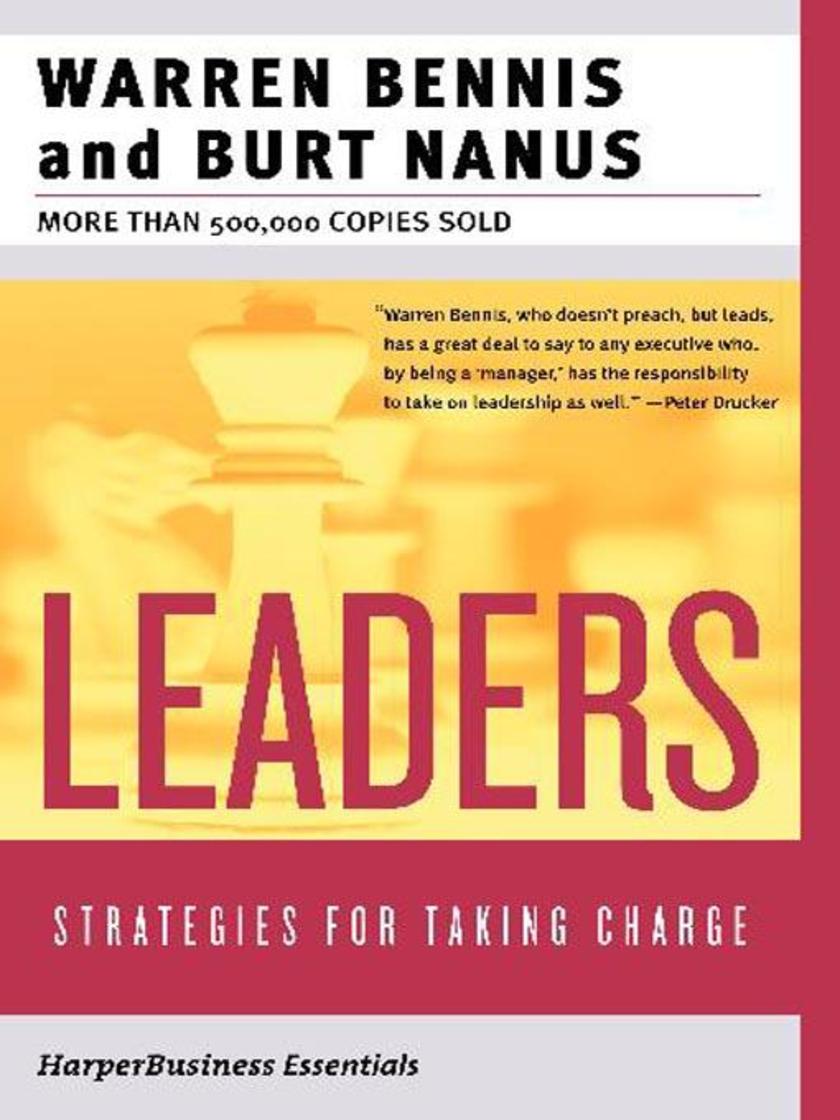
Leaders
¥94.10
In this illuminating study of corporate America's most critical issue leadership world-renowned leadership guru Warren Bennis and his co-author Burt Nanus reveal the four key principles every manager should know: Attention Through Vision, Meaning Through Communication, Trust Through Positioning, and The Deployment of Self. In this age of "process", with downsizing and restructuring affecting many workplaces, companies have fallen trap to lack of communication and distrust, and vision and leadership are needed more than ever before. The wisdom and insight in Leaders addresses this need. It is an indispensable source of guidance all readers will appreciate, whether they're running a small department or in charge of an entire corporation.

I Shouldn't Be Telling You This
¥94.10
Kate White New York Times bestselling author, editor in chief of Cosmopolitan for fourteen years, and motivational speaker shares her gutsy secrets to success in this witty, straight-talking new career guide for women.Whether you've just settled into your first work cubicle and have no clue how to go after the success you crave, or you've already got a sweet little office but you aren't sure how to take your career to the next level, I Shouldn't Be Telling You This gives you all the secrets you need to become a success, go big with it, and then savor every second. It is jam-packed with insider strategies, interviews with women at the top of their game, and Kate's advice from her own career running five major magazines (including one of the bestselling women's magazines in the world, Cosmopolitan). She hows you how to break out of the pack, master the learning curve, make bold moves, and, ultimately, have the career you've always lusted for!Kate shares five secrets every woman needs to know how to:Land a Job You're Truly Passionate About Use "Bitch Envy" to Your Advantage Radiate Confidence and Get Buzzed About (Without Worrying What Other People Think)Ask for the Money You Want and Get It Manage Your Career and Not Just Your Job (It's a Whole Different Ball Game!)But more than anything, Kate says, you have to go big or go home do what's unexpected and always keep your career trajectory in mind. It might be tackling a project that no one else is taking on and nailing it then making sure your boss knows it. Or it might be developing a "golden gut" that will help you to break the rules the right way, so you always end up shining. In I Shouldn't Be Telling You This, Kate White shares the kinds of secrets no boss is ever likely to spill all with her irreverent wit and candid style. You'll come away with the know-how you need and you'll feel as though you've just gotten up from a fabulously dishy lunch!




 购物车
购物车 个人中心
个人中心



